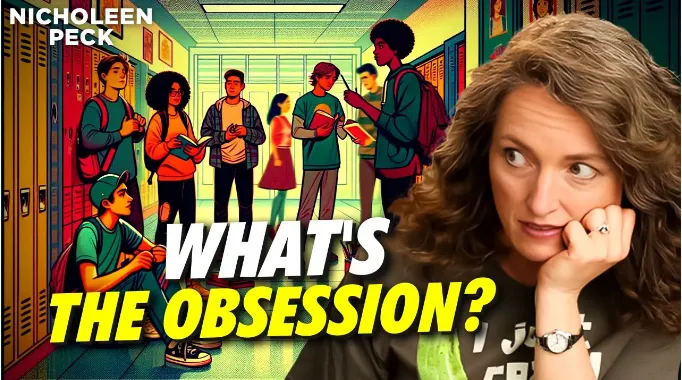
Why Do Teenagers Want To Be Popular?
Why Do Teenagers Want to Be Popular?
I'm Nicholeen Peck, and I travel the world teaching about parenting, good communication, building strong family bonds, and child development education. Today, we're diving into the topic of popularity, teenagers, and self-government. We'll explore why teenagers crave popularity and what we can do to help them maintain a healthy perspective on their social interactions.
Humans are social creatures and naturally want friends. However, in today's world, being popular often means more than just having friends. It means being noticed, having an impact, getting attention, and sometimes even being perceived as better than others. Our teenagers are in a developmental stage where they're preparing to launch into the world, and they instinctively know they need a support system around them. The desire for friendship and validation is a natural part of this process.
When teenagers receive attention or praise, it boosts their confidence. They feel that their efforts in improving their appearance, intelligence, friendliness, honesty, or any other characteristic are recognized and valued. However, popularity among peers often carries more weight than popularity among family members because it provides external validation that they are acceptable and ready to move forward in life.
Interestingly, behind the scenes, parents often hope their children will be popular too. Sometimes, parents can become more obsessed with their child's popularity than the child is. If your child seems fixated on being popular, it might be worth reflecting on your own attitudes. Do you want your child to be popular because you believe it will help them succeed later in life, or because you want others to see how amazing they are? Are you hoping they will date certain people or have experiences that only popular kids have? Be mindful of these motivations and ensure you're not projecting your own desires onto your child.
Not all children are destined to be popular, and that's okay. Some of the most successful people were not popular in their youth. Putting pressure on your child to be popular can make it harder for them to achieve social success. When teenagers feel pressured about their social status, they may become overly focused on not meeting expectations, which can hinder their social development.
Every person wants their life to have purpose and impact, and this desire becomes particularly strong during adolescence. I've spoken to many youth groups about finding purpose and making an impact, and I've seen the lights go on in their eyes when they realize they can start making a difference now. It's crucial for teenagers to understand their roles and identities within their families and communities to develop a deeper sense of self and purpose.
Focusing on popularity is fleeting. Instead, we should emphasize who our children are as individuals, their roles, and what they can accomplish. Teaching them adult skills and providing opportunities for them to spread their wings, serve others, and build meaningful relationships will help them become secure and confident.
To help your teenagers find purpose and impact without becoming obsessed with popularity, consider discussing their roles within the family. My book, Roles: The Secret to Family, Business, and Social Success, can be a valuable resource. It helps families understand their roles and improve communication, which can be transformative for all relationships.
Creating a calm and supportive family environment is also essential. The Teaching Self-Government parenting program offers skills like disagreeing appropriately and accepting no answers and boundaries, which are vital for healthy communication. Ensuring that your family can discuss disagreements calmly and constructively will preserve relationships and boost your teen's confidence and social skills.
As a gift to help you on this journey, I offer the Calm Parenting Toolkit, a mini-course with 10 tools for calmness. It's a great introduction to Teaching Self-Government and will set you on the path to a calmer, more connected family. You can access the toolkit for free by clicking the link in the description below.
Fostering strong family bonds and teaching self-government will prepare your teenagers for healthy, successful social interactions in all areas of their lives. Let's focus on who they are and their potential to make a meaningful impact, rather than on fleeting popularity.

